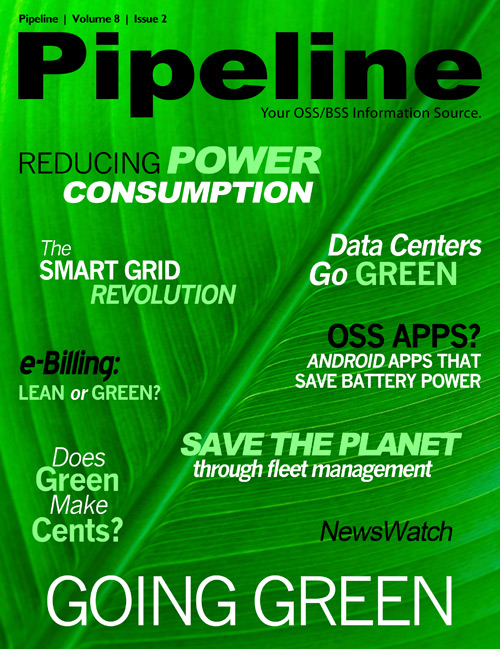Can Use Less
By: Tim Young

Communications technology is going to save the planet. A commercial on my television told me so.
There are tales that have been told that once upon a time people would have to travel great distances
just to hear each other’s voices. To read a message from a far-flung loved one, you would have to wait
until a piece of paper containing that love note or family greeting would be carried from one place to
another.
These letters and travelers were carried by great smoke-belching trains and airplanes and automobiles.
The flowers wept.
But thanks to technology, messages are carried instantaneously, powered only by the dreams of
children.
What’s that you say? It’s not so simple?
As a matter of fact, telecom does help to ease a great deal of strain on the carbon footprint of the
world’s massive population in many ways, but we can’t forget that networks and devices are hungry,
and they require their own supply of power.
According to a presentation by Nokia-Siemens Networks’ Hans-Otto Scheck at an ITU Symposium held
a few years back, telecom providers burn around 50 megatons of CO2 annually. That bulk of carbon is
roughly equivalent to 100 terawatt hours (TWh) of electrical energy.
That’s no small amount.


However, when you compare that amount of energy spent to that of many other industries, of course, it
becomes far less deadly-looking. An Ericsson whitepaper on the link between carbon intensity and total
cost of ownership (cleverly dubbed TCO2) notes that the ICT sector, as a whole, is only responsible for
around 2% of the world’s carbon emissions, and that telecom, specifically, represents only 0.6 percent
of the total output.
That’s modest compared to transportation or other industries, to be sure. Furthermore, as Scheck
noted in that same presentation, ICT can easily help to alleviate at least that amount of environmental
strain by removing the need for excessive travel and postal transport.
In addition, this relatively small percentage of total carbon output has been scaled back substantially
in the past few decades. BT, for example, made a pledge back in 2008 to reduce its carbon emissions
by 80% by 2020. To date, BT has made significant strides toward that goal, and has trimmed its carbon
intensity by 60% from 1997 levels.




